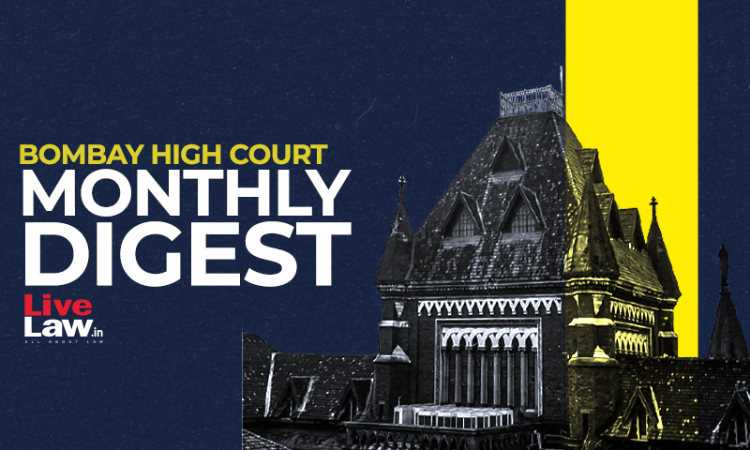- Home
- /
- High Courts
- /
- Bombay High Court
- /
- Bombay High Court Monthly Digest:...
Bombay High Court Monthly Digest: May 2024
Amisha Shrivastava
17 Jun 2024 11:15 AM IST
Nominal Index [Citation 237 - 277]Balkrishna Barsha Sutar v. Income Tax Officer 2024 LiveLaw (Bom) 237Godrej and Boyce Manufacturing Company Ltd v. Shivkranti Kamgar Sanghatana 2024 LiveLaw (Bom) 238Pradeep Hiraman Kale v. State of Maharashtra 2024 LiveLaw (Bom) 239Bhatewara Associates v. Income Tax Appellate Tribunal, Pune & Ors. 2024 LiveLaw (Bom) 240Navi Mumbai Hotel Owners Association...
Next Story



